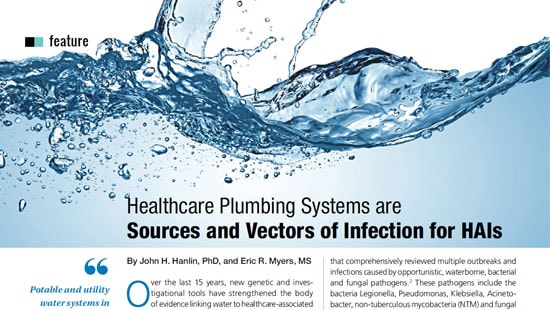
Water Safety Management
Water is not sterile. It can harbor bacteria such as Legionella, which can cause severe illness and even death. Recent outbreaks have taught us that Legionella is not specific to any geographic area and that no industry is immune from outbreaks.
As the global leader in water safety for more than 30 years, Nalco Water is uniquely qualified to design a water management plan and advise on water system safety to help you manage and reduce Legionella risk, all while operating responsibly and profitably.

Legionella in Water
Legionella is naturally present in surface water and can infiltrate municipal water supplies by surviving the water treatment process. It can also infiltrate our water systems due to water main failures or during construction projects, compromising water system safety. Once Legionella enters your facility, it can contaminate your cooling and potable water systems and eventually spread to faucets, showers, hot tubs and whirlpool spas. The use of these systems can create contaminated water droplets or mists that allow for bacteria inhalation into the lungs of potentially susceptible individuals who can become ill with legionellosis.
Try our bacteria calculator

Step 1:
Managing Legionella Risk
Let Nalco Water develop a water management plan for your facility. Your customized plan will incorporate the required elements of ASHRAE Standard 188, and your plan will include our deep knowledge of water system safety. This plan is a roadmap to managing Legionella risk that incorporates a continuous process to manage, verify and validate your plan. These are only some of the critical steps to reduce the risk of Legionella.

Step 2:
Legionella Control Strategies
Once your water management plan is in place, the results of your routine Legionella testing and your oxidant residual and water temperature monitoring may indicate a need for implementing a more robust control strategy. Whether those steps require short-term remediation, such as hyperchlorination or thermal eradication, or long-term control strategies, such as supplemental disinfection, point-of-use water filters or even a cooling tower system protocol, you need an experienced partner in water system safety to provide guidance.

Infection Control Today
Potable and utility water systems in healthcare settings are reservoirs and vectors of HAIs resulting in pneumonias, bacteremias and a variety of infections.
Read this article published in Infection Control Today, written by our Water Safety experts.



